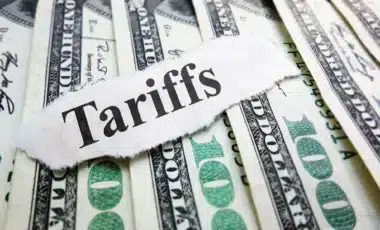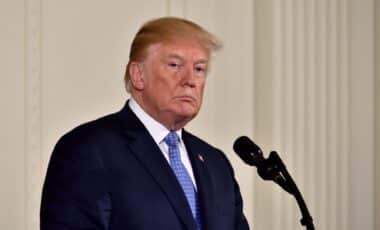As President Donald Trump doubles down on his tariff-based trade policy, American consumers are being warned to expect higher costs heading into the holiday season.
The continuation of key tariffs, particularly on goods imported from Asia, is set to disrupt supply chains and push up prices on everyday items.
At the same time, tensions with the European Union are mounting, with fresh warnings of reciprocal tariffs and organized boycotts against US products.
The economic impact of these developments is already being felt by American exporters and domestic retailers, prompting concern across the political spectrum.
Tariffs Remain Central to Trump’s Reshoring Strategy
President Trump has made it clear that certain tariffs will remain in place throughout his current term. In a recent interview with NBC’s Kristen Welker, he stated that removing tariffs would discourage companies from relocating manufacturing back to the United States.
“If somebody thought they were going to come off the table, why would they build in the United States?” he said.
According to The Independent, this position aligns with Trump’s broader effort to renegotiate trade deals and re-establish domestic production capacity. The strategy has led to increased costs for importers and created widespread uncertainty for businesses.
John M. Veitch, an economics professor at Notre Dame de Namur University, explained that many holiday imports from China are already locked in and that tariffs will now be “baked in” to seasonal prices.
The effects are being felt across sectors. Apple CEO Tim Cook noted during a recent earnings call that current tariffs could add $900 million to the company’s costs if left unchanged.
The consumer electronics sector, including products from Microsoft, Nintendo, and Apple, is expected to bear the brunt of this pressure as tariffs target electronic goods such as phones and game consoles.
European Pushback and Domestic Political Rifts Emerge
While the administration pushes ahead with tariffs, reactions abroad and at home have been mixed. According to CNN, European governments are preparing to reinstate tariffs in response, and grassroots boycotts of US goods are already underway.
Products labelled “Made in America” are reportedly being removed from shelves in several countries, indicating the early stages of a broader consumer backlash.
Domestically, some Republican lawmakers have expressed support for the strategy, framing it as a matter of national resilience. Representative David Joyce of Ohio told CNN that Americans understand “shared sacrifice” in pursuit of long-term economic goals.
Others, like Representative Don Bacon of Nebraska, voiced concern for the agricultural sector, which is already seeing markets in Europe shut off for US beef and other exports.
Efforts to limit the President’s tariff powers are underway in Congress. A proposed bill would require Congressional approval for new tariffs, reversing decades of executive control. While the measure lacks the majority needed to override a veto, its support signals increasing discomfort within the President’s own party.
Despite temporary market gains, analysts like Larry Adam of Raymond James caution that sustained uncertainty could tip the US economy into recession without a stabilizing budget plan.









